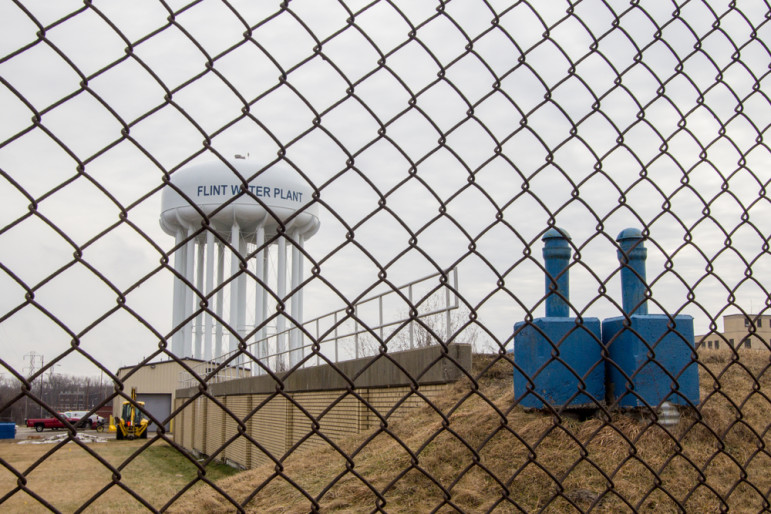
The Flint catastrophe sheds light on the growing practice of state-appointed emergency managers. Before Flint hit the news, appointments of emergency managers were local stories, usually focused around failing local governments or school boards that “earned” state intervention. To the general public, who may be concerned that their tax dollars are being wasted by local politicians or insolvency costing them money, appointing an emergency manager has an aura of a “Lone Ranger”–type intervention. To local people, an emergency manager can seem more like your autocratic boss on the production line or the general of an occupying army. Flint’s experience with emergency managers (four in five years) illustrates almost all of the downsides of this trend of appointing emergency managers to support failing communities. Right now 18 states have some kind of emergency manager law that permits states to “take over” failing local jurisdictions. In an article in The Atlantic’s CityLab, Brentin Mock gives an overview of emergency manager laws and observes, “Takeovers come in so many flavors, it’s difficult to conclude whether they are a good or bad idea.”
Laura Bliss draws on Mock’s article in examining how Michigan’s emergency manager law works. In “How Democracy Died in Flint,” Ms. Bliss underscores the fact that Michigan had strengthened its emergency manager law, over citizen objections, under Governor Snyder’s leadership:
One of the first things Governor Snyder did when he took office in 2011 was sign into law an expansion of the state’s emergency manager law. Michigan voters rejected that law by referendum the following year. But one month later, Governor Snyder approved a slightly tweaked version of that same law, which included an appropriation that barred voters from challenging it again.
The modern emergency manager can be viewed as a “czar” who makes civic and political decisions, not just “technical” decisions. So it was that Flint’s emergency managers made the decision to switch from Detroit water to a cheaper source in the Flint River.
Even if the switch made economic sense, ordinary people in Flint knew immediately knew that something was wrong. The new water was brown! When Bob Dylan wrote, “You don’t need a weatherman to know which way the wind blows,” he may have been prophesying the Flint managers’ decision, which was made without consulting with local, state or federal water system experts. The “czar quality” of the Flint managers was abetted by a total lack of common sense. Ordinary people could figure out that the change was a mistake, but they were largely powerless to appeal the decision.
The contemporary notion of appointing an emergency manager seems to arise from the practice in the corporate world of bringing in a turnaround specialist who can take the reins of a failing corporation and make hard decisions (e.g., cut jobs, break the union, and close the plant) in order to lay the foundation for a return to profitability. Except local governments aren’t investor-owned corporations, and citizens aren’t employees. Think about Mitt Romney’s work at Bain Capital, or Carly Fiorina’s at Hewlett Packard. Then apply those principles to a local community. The myth that business acumen can enhance government is never so obviously debunked as with emergency managers appointed by state officials.
In the social ecology of a local community, an emergency manager is just another predator, with turf to protect and prey to consume. Norton Long’s classic 1972 article, “The Local Community as an Ecology of Games,” summarized the complexity of these relationships:
The local community can be usefully conceptualized as an ecology of games. In the territorial system a variety of games goes on: banking, newspaper publishing, contracting, manufacturing, etc. The games give structures, goals, roles, strategies, tactics, and publics to the players. Players in each game make use of players in the others for their particular purposes. A banker uses the politician, the newspaperman, or the contractor in his game and is, in turn, used by them in theirs.
In Long’s model, the reason an emergency manager can’t function as a czar is embedded in the nature of communities. “The interaction of the games produces unintended but systemically functional results for the ecology. An over-all top leadership and social game provide a vague set of commonly shared values that promotes cooperation in the system though it does not provide a government.”
USA Today’s report on breakdown of communication among the players illustrates the breakdown of Flint’s “set of commonly shared values that promotes co-operation in the system.” USA Today reports:
Sign up for our free newsletters
Subscribe to NPQ's newsletters to have our top stories delivered directly to your inbox.
By signing up, you agree to our privacy policy and terms of use, and to receive messages from NPQ and our partners.
Thousands of pages of emails obtained by the Detroit Free Press on Monday show increasing concern about the quality of the Flint’s drinking water as tensions grew over a lack of coordination to combat the waterborne disease. County health officials were warned for reaching out to federal experts for help while they struggled to persuade Flint city officials to provide needed information, the emails show. Others in emails wondered about ethical breaches and the possibility of a cover-up.
Clearly Flint’s emergency managers never became a part of the social ecology.
So why, besides bad theory and bad judgment, does a governor appoint an emergency manager? Think of the first principle of politics: “Reward your friends and punish your enemies.” With so many states run by conservative governors whose political bases are in gerrymandered rural and suburban communities, the chance to take control of urban communities where they have no political support makes good political sense. It’s a kind of coup d’état that extends the governor’s effective hegemony over “foreign” territory. The New York Times noted this in an editorial entitled “When State Control Damages a City,” which states flatly:
The emergency managers in Flint and Detroit schools went in as dictators, and it is not surprising they made glaring mistakes, while ignoring complaints and suggestions from the communities they were supposedly helping. Unlike the financial control boards in New York and Washington, which included people who had a stake in those cities, Michigan’s emergency managers answer only to the governor and the Legislature, which is controlled by Republicans, who tend to be elected from suburban and largely white parts of the state.
So, where from here? The academic studies suggest that there should be a clearer distinction between the situation of misfeasance or malfeasance by local officials and the situation of economic insufficiency. Imposing a czar on a community experiencing financial insufficiency because of a catastrophe like Hurricanes Sandy or Katrina or a bankruptcy because of the Great Recession may be inappropriate. Outside expertise may be less important than outside financial support.
But maybe it’s a different kind of emergency manager that’s needed. In his 1946 classic Reveille for Radicals, Saul Alinsky outlined a local intervention where a professional organizer serves as a catalyst that brings together local leaders around a community need and stimulates community members into full participation, without reaping the rewards of public office or other personal gains.
It is like the chemical process in which hydrogen and oxygen, brought together in the proper proportions and under the right conditions, result in an entirely new product—water. It becomes the job of the organizer first to get the two elements together and second to make sure that they are brought together in the proper proportions. (p. 103)
The key difference between an Alinsky-style intervention and an emergency manager is the organizer’s deference to indigenous leadership to shape the meaning of the struggle. Alinsky recalled the eruption of sit-down strikes in the 1930s at the GM plant in Flint.
When the first sit-down strikes took place in Flint, no one had really planned them. They were clearly a violation of the law—trespass, seizure of private property. Labor leaders ran for cover, refused to comment. But [John L.] Lewis issued a pontifical statement: “A man’s right to a job transcends the right private property,” which sounds plausible. It undergirded the sit-downs with a purpose, a direction. (The Professional Radical, p. 16)
Hopefully, Flint is finding its voice and, in the process, identifying a purpose—like promoting the idea that water is a human right—and a direction.












